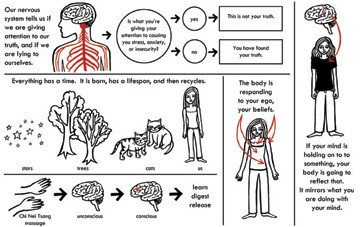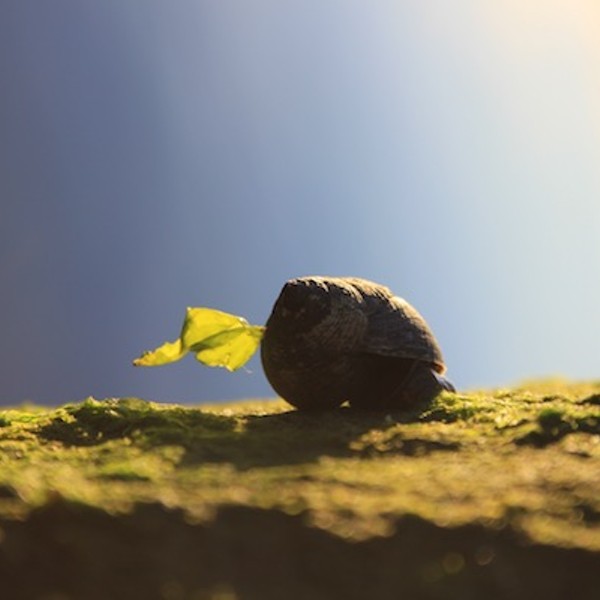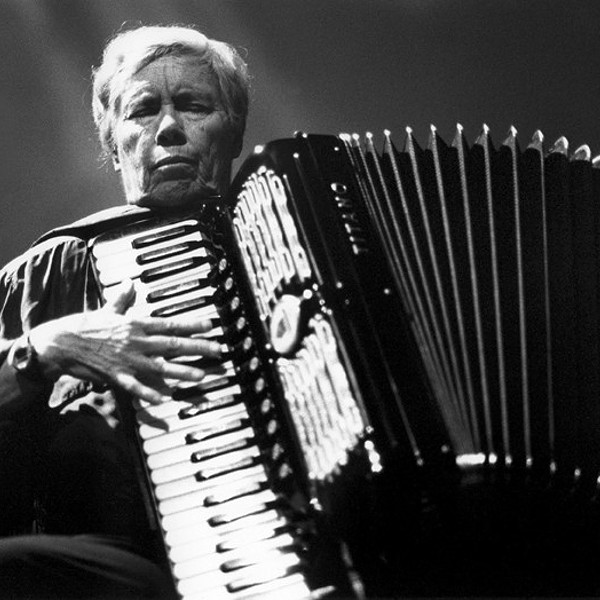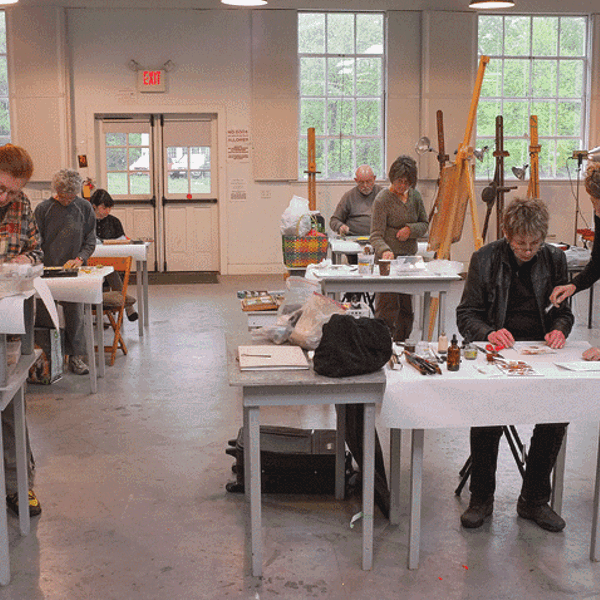In anticipation of her Omega Institute workshop, “Making Your Mind Your Friend: Detoxify Your Mind, Body, and Emotions” (June 13–18), Vaishãli shared some of her perspectives by telephone, excerpted below.
You have learned from Eastern health and spiritual practices that what we say to ourselves is foundational to our physical health. Can you tell us a little about that?
What I most appreciate about the Eastern systems of healing is that their paradigm includes our spiritual identity. They understand we are spiritual creatures, having a human experience—that the human experience is a learning and an evolutionary process for our spiritual essence. Our consciousness is in the driver’s seat. It directs our body. I like to use the metaphor of our body being like a rental car. The car does not navigate on the highway of its own accord. It’s responding to the consciousness of the driver. The body is responding to your ego, your beliefs. So if your mind is holding on to something, your body is going to reflect that. It mirrors what you are doing with your mind.
Allopathic medicine has a very different value system. It does not recognize that we’re spiritual creatures. That takes out the relationship between consciousness and the body.
So the consciousness is in charge, which is why you emphasize how important it is that we choose what we pay attention to—that we make our minds our friend.
Yes, when we take accountability for what we give our attention to, we are now deliberate, free-willed navigators of our human experience. Our body doesn’t decide if our consciousness is giving it something useful or not, something healthy or unhealthy. It simply responds to what we are giving our attention to. The body does have its own form of intelligence, and of healing wisdom, but it is neutral. The direction of intention and perspective that our consciousness holds will ultimately determine how our bodies respond to each stimulus we encounter.
From a spiritual point of view, we come to the Earth to recognize who we are, to answer the big questions: Why am I here? What is the meaning of my life? What is the purpose of my relationships? What’s my value, my power? Our bodies are our vehicle for finding those answers. And they carry whatever we have not healed, or digested, and released. They carry that until we get the full evolutionally gift of our learning experiences. If you have the experience of being injured or getting ill, there is something in it for your spiritual growth. It’s a lifelong love affair.
That phrase—a “love affair”—is not exactly the phrase a lot of people would use to describe their relationship with their body. There can be a lot of judgment.
When we are wrestling with the body issue—feeling that the body is not giving the result we want—we need to stand back and consciously acknowledge we are not our body. Our consciousness has an intimate relationship with the body, and we are aware of what it’s going through—we feel hungry, sleepy, in pain, excited, and so on—which we perceive through our neural network. And because of that neurological, intimate relationship, we confuse our selves with the body. But we are not our body. We are divine love.
Consider what the body goes through for us—all the things that can happen to our fragile, delicate container. The body gets injured, it gets ill, it ages, goes through surgeries. How many people would go through this for you? What relationship do you have, all life long, that would go through any unspeakable thing the body goes through for you? It loves you that much. Your body never leaves you, until you leave it. When you think about that, it reframes our previous myopic judgment about our bodies.
When I talk to my body lovingly, and say, “You are wise and powerful and amazing, I love you and trust you! We are in this together, girlfriend!”—when I tell the body, “I will get you what you need: purified water, balanced food, exercise, acupuncture; whatever it is, I’ll make sure you get it”—when I become my body’s biggest cheerleader, that changes the meaning of suffering. It makes that challenging, in-your-face, neurological relationship with your body a jointly acknowledged adventure. It opens the door for this being a purposefully engaged collaboration with your body, instead of a burden that you drag with you.
What guidance can you give for someone who has a life-threatening illness and has tried many things to get better, including alternative and spiritual approaches, but learns that the condition is still getting worse?
One of the things I find about the human experience is that we are meaning-driven and purpose-driven creatures. So when we look at an illness that is not going away, we always have the freedom to ask ourselves, “What is the purpose and meaning of this? What is it bringing me?” I know of people who have died, and their loved ones created outreach communities because of it, and it has spiraled out and created a chain reaction of people living and caring about each other as if we are one. That was the meaning of this person’s death. It allowed others to wake up from their sleepwalk, and respond to life from a completely different level that brought our inner actions and outer actions with other people to completely different dimensions.
Eastern forms of self-healing will tell you that sometimes death is the ultimate healing—the ultimate of growing beyond any human limitation. We don’t have that here. We look at death as this battle we lost, a journey of suffering that ended in a monument of victimhood. There is nothing life enhancing or truthful about that!
Yes, that’s a pretty good description of “fighting” an illness to the bitter end.
Yet, when we stand back to consider that no one can die, that we are divine love and wisdom, that our job description is to live and grow eternally—that changes the meaning of death. You may leave this body, this lifetime, and graduate to a different classroom, but you won’t die.
I love the story of Socrates, and why we consider him so valuable. When he was being forced to drink hemlock for corrupting youth, because he asked questions, the closer the time came for him to do that, the more upset his followers became about his impending death. But he said to them, “What do you know about death that I don’t, that you are so upset?” He was looking at life as a universal thing. Everything has a time. It is born, has a lifespan, and then recycles. That is universal wisdom. Everything does this—stars, trees, cats—nothing on the planet is the exception to that. Why would you assume that death of the body is bad, and something to be feared? We celebrate the birth part. Why is the death part the exception?
If we go back to the analogy that your body is a rental car, and your consciousness—your spirit that is divine love—is driving, I see dying as getting an upgrade. You’re getting a life experience upgrade. Why wouldn’t we want that for ourselves, or for a loved one?
So our vehicle’s “driver” is our spiritual self, our consciousness, and these bodies are carrying us, for a time, through our human experience of learning. How do we know if we are growing in the right direction?
The purpose of life in a body on the Earth is to practice and realize right relationship with consciousness, to realize that we are divine love. Consciousness is eternal, and we bring it with us when we come to the Earth, and take it with us when we leave. We come here because there is a purpose to being in a body and having a life—and I suspect, we have more than one life.
The human experience is a self-correcting guidance system, guiding the evolution of your soul. I invite you to constantly look at what you are doing with your mind, what meaning you are manifesting, and how you are responding. Our nervous system tells us if we are giving our attention to our truth, and if we are lying to ourselves. When you are moving through life and find what you are giving attention to is giving you more stress, unhappiness, insecurity—it’s nature’s way of telling you, “This is not your truth.”
Your workshops and writings help others learn how to listen to the body’s messages, and how to pay attention, literally, to our true identity as divine love. As part of that, you teach a type of internal organ massage. The name conjures up disturbing images for me, but I know I’m imagining something else. Can you tell us about the technique?
It’s an esoteric Taoist technique from remote China, called Chi Nei Tsang. It is about purging the body of negative emotions and bringing consciousness back to the core of the body. Not a lot of people do this form of massage, but it is probably the most powerful form of healing on the planet. Besides being a physical manipulation and a retraining of the breathing process, it’s an emotional exorcism. It’s what I learned in my twenties, when I was told I would die of internal organ degeneration. Through that, I was able to pull all the fear out of my body that I had put there through my addiction to worry. It was so powerful, and I spent so much time using it, I decided to get trained and certified so I could teach it to others. It’s designed to be self-administered. One reason I love it is that it allows you to have a conscious relationship with your body.
What our body is carrying is bits and pieces of what has not been released. When you know how to do this massage, you can tell if you are holding on to unresolved issues—to fear, anxiety, sadness, grief—anything that has not been released. Our bodies are designed to house awareness, not undigested bits of life.
Practitioners of hands-on body work know that touch can release unexpected, powerful emotions, and some of us have experienced that ourselves in receiving bodywork. It can be transformational.
I remember working with a man who was having pain near his kidneys, a knot that I was able to release and unravel, and he sat up and said, “Oh my god! I just remembered a time when I was five and walked in on my mother in her bedroom, having an affair with a man who was a professional boxer. When he saw me he jumped out of bed and gut-punched me!” So this man was holding this all these years, this memory around his kidney. During the massage, it came up through his body, through his unconscious mind, then his conscious mind to his awareness. When it is in your awareness, you can learn from it, digest it, and release it.
I used this work to save my life, and during the process all I would do is cry, like clockwork, and then later I experienced how deeply relieving it was. I was comfortable giving this gift to others, because I understood how powerful it was. People who are not using this to save their lives are not necessarily as comfortable with it. That’s why, in a workshop, in the morning I teach how to take your power back, to embrace your spiritual journey with confidence, and put your consciousness back in the driver’s seat. We learn how to have this lifelong love affair with your body instead of a cantankerous, tortured dynamic. Then, in the afternoon, I show you how to pull undigested toxic life out of your body using this technique. If I just teach the massage, and don’t show you how to make your mind your friend, you’ll just put more toxic stuff back in there.
If I could change the planet, I would make it a law that people get this massage at least twice a month. It would revolutionize our world!
















